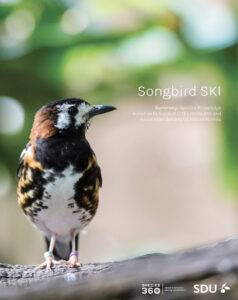The Species Knowledge Initiative
The Species Knowledge Initiative (SKI) integrates multiple data sources to quantify current knowledge for species across six knowledge areas.
The methodology for the SKI was first developed by Conde et al. 2019 to map demographic knowledge at the species level. Using the same methodology, the SKI is now led by the Species360 Conservation Science Alliance in collaboration with the University of Southern Denmark Biology Department and the Interdisciplinary Centre on Population Dynamics (Cpop).
The aim of the SKI is to map gaps and opportunities for research to support evidence-based decision-making by policymakers, management authorities, zoo and aquarium leadership, and conservation practitioners. The SKI works with partners across various disciplines to standardize, visualize, and consolidate data for every extant vertebrate species.
Based on a bird’s eye view (i.e., a landscape ecology perspective), the SKI methodology maps data from different knowledge areas using species as a mapping unit. Species information is retrieved from open-data repositories using data-processing algorithms.
The six knowledge areas mapped by the SKI are:
- Human use (e.g., international trade, use as food or medicine).
- Extinction risk (e.g., IUCN Red List, vulnerability to climate change).
- Conventions and treaties (e.g., CITES, Convention of Migratory Species [CMS], United Nations Convention on the Law of the Sea [UNCLOS]).
- Management opportunities (e.g., in-situ conservation programs, ex-situ interventions).
- Biological information (e.g., clutch or litter size, longevity, genomic sequences).
- Species intrinsic values (e.g., evolutionary distinctiveness, phylogenetic diversity).

The Songbird Species Knowledge Initiative
Songbirds are the first taxon to be mapped using the SKI methodology with the main objective of supporting the Convention on International Trade in Endangered Species of Wild Fauna and Flora (CITES).
The goal of the Songbird SKI is to identify and rank species in terms of their prevalence in international wildlife trade in relation to their survival status in situ and to direct further research on the impacts of international trade.
Click here to learn more.








